Search
Did you mean: Byzantium?
Search Results
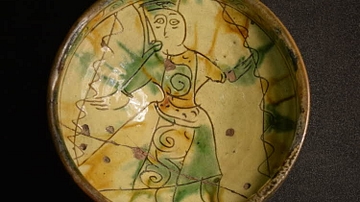
Image
Byzantine Bowl with Female Figure
This bowl, dating to the 14th-15th century CE, features a stylized figure of a woman. It is glazed on the inside, and partially on the outside. Made in Cyprus. Discovered in Cyprus. Measures 6.4 cm in height and 16.3 cm in diameter. (British...
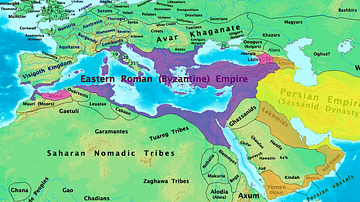
Image
Byzantine & Persian Empires in the 7th Century
A map showing the extent of the Byzantine Empire and the Sasanian Empire in the 7th century.

Image
Byzantine Empire, 1025 CE
A map of the Byzantine empire in 1025 CE at the death of Basil II (r. 976-1025 CE).
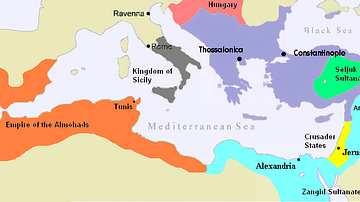
Image
Byzantine Empire c. 1180 CE
A map illustrating the Mediterranean in the 12th century and, in purple, the Byzantine Empire c. 1180 CE, during the reign of Manuel I Komnenos.
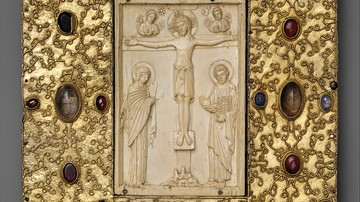
Image
Byzantine Book Cover with Icon
A Byzantine book cover with an ivory icon of the crucifixion. Gilded silver with crystal, glass and sapphire cabochons. Constantinople, 11th century.
Metropolitan Museum of Art, New York.

Image
Byzantine Empire c. 460 CE
A map indicating the Byzantine Empire (aka Eastern Roman Empire) c. 460 CE during the reign of Leo I (457-474 CE)
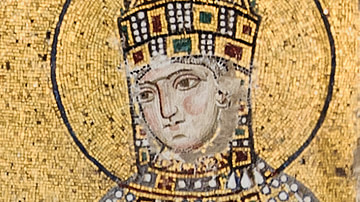
Image
Byzantine Empress Zoe
Mosaic from the Hagia Sophia in modern-day Istanbul (previously Constantinople), Turkey, depicting Zoe, empress of the Byzantine Empire from 1028-1050 CE. She was the daughter of Constantine VIII (r. 1025-1028 CE).
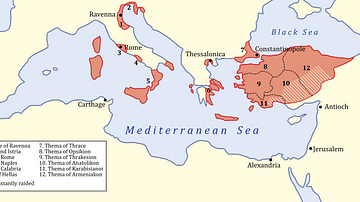
Image
Byzantine Empire, 717 CE
A map of the Byzantine empire and its themes and provinces in 717 CE.
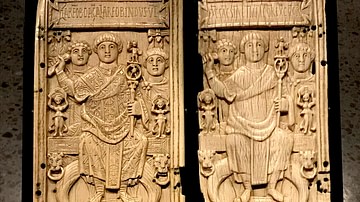
Image
Byzantine Diptych of Ivory
Diptych (two-part writing tablet), ivory. c. 506 CE. From the collection of the Zurich historian J. H. Hottinger (1620-1667 CE). The man on the throne was called Areobindus. He is shown giving the signal to begin the animal combat depicted...

Image
Byzantine Empress Irene
Depiction of Byzantine Empress Irene, the wife of Emperor John II (r. 1118-1143 CE) as found in the Hagia Sophia in modern-day Istanbul (previously Constantinople), Turkey.